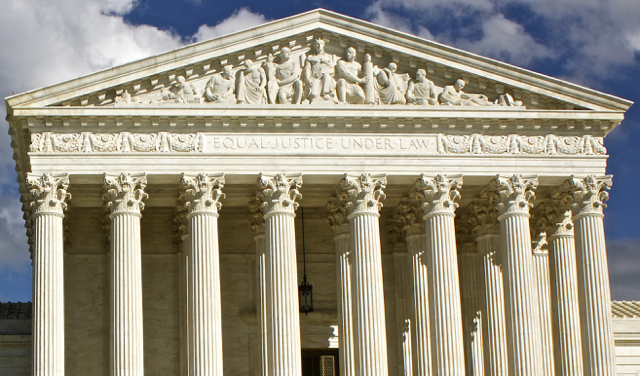The U.S. Supreme Court began its new term Monday with a highly anticipated abortion case on its schedule, one that could allow states to protect unborn babies from abortion violence.
That case, Dobbs v. Jackson Women’s Health, involves a 2018 Mississippi law that prohibits abortions after 15 weeks of pregnancy when an unborn baby is nearly fully formed. The lone Mississippi abortion facility, Jackson Women’s Health Organization, and the Center for Reproductive Rights are suing to block the law. The hearing is scheduled for Dec. 1.
Pro-life advocates and abortion activists both anticipate that the conservative-majority court will weaken Roe v. Wade or overturn it altogether and allow states to protect unborn babies from abortion again.
“The [Mississippi] case is a promising opportunity for the pro-life movement to have the biggest Supreme Court win since 1973,” John Seago, legislative director of Texas Right to Life, told the Texas Tribune. “We are optimistic.”
The case centers around the question of “whether all pre-viability prohibitions on elective abortion are unconstitutional.” Currently, under Roe and Planned Parenthood v. Casey, states are prohibited from protecting unborn babies from abortion before viability, about 22 weeks of pregnancy.
Follow LifeNews.com on Instagram for pro-life pictures and videos.
Carrie Severino, chief counsel and policy director of the Judicial Crisis Network, said the Supreme Court has the opportunity to correct its “egregious” abortion rulings with the Mississippi case.
“ … this is an opportunity for the court to really set straight some precedent that has been really egregious; even a lot of pro-choice scholars have talked about the problems with Roe v. Wade because it’s not actually grounded in constitutional law itself,” she told Newsmax.
Severino said a solid majority of the justices are committed to upholding the original intent of the U.S. Constitution.
“That means that they’re not going to look to what things emanate from the Constitution; what things might be derived from, you know, from third-layer extrapolations from the Constitution, but actually, what does the Constitution itself say,” she said.
Father Frank Pavone, national director of Priests for Life, said President Donald Trump played a significant role in shaping the current court. All three of the justices who Trump appointed were part of the majority who recently refused to block the Texas heartbeat law – which pro-lifers believe is a promising sign.
“We are confident that this court, shaped significantly by President Donald J. Trump, will let its abortion rulings catch up with the times,” Pavone said, pointing to scientific advances that show the humanity of unborn babies.
Outside of the U.S. Supreme Court on Monday, Pavone joined Allan Parker of the Justice Foundation to unveil two scrolls with the signatures of half a million Americans who agree that abortion is a crime against humanity.
“In particular, we are asking the court to resolve the conflict between, on the one hand, asserting that the states have an interest from the onset of pregnancy in promoting maternal health and the life in the womb, and on the other hand treating as unconstitutional any law which the states, in promoting those interests, pass to protect unborn children prior to viability,” Pavone said. “Laws regarding health and medical procedures belong primarily to the states. Abortion is the only procedure that has been given constitutional status. It is time for that to change.”
Even pro-abortion groups and abortion activists believe the Supreme Court may rule in favor of the Mississippi pro-life law.
Texas state Rep. Jasmine Crockett, a pro-abortion Democrat from Dallas, told the Tribune that the upcoming case makes her nervous, especially after the Supreme Court refused to temporarily block the Texas heartbeat law in September.
“A lot of things we do as lawyers, many lawmakers and even activists is we look for clues,” she said. “The Supreme Court really gave us a terrible clue of where their interest lies right when they decided not to stop the imposition of [the heartbeat law].”
Some believe the court may issue a more narrow ruling on abortion rather than overturn Roe v. Wade altogether. Even if the justices do overturn Roe, aborting unborn babies likely will not become illegal throughout the U.S. Instead, the power to ban or legalize the killing of unborn babies will return to the states. Currently, 11 states have laws in place to immediately ban abortions once Roe is overturned, and the Ohio legislature is considering a bill to do the same this fall.
In 1973, the U.S. Supreme Court took away the states’ ability to protect unborn babies from abortion under Roe v. Wade, and instead forced states to legalize abortion on demand. Roe made the United States one of only seven countries in the world that allows elective abortions after 20 weeks.
Since Roe, nearly 63 million unborn babies have been legally aborted in the U.S. Polls consistently show that a strong majority of Americans oppose abortions in the second and third trimesters and many support heartbeat laws that protect unborn babies at their earliest stage of life.








